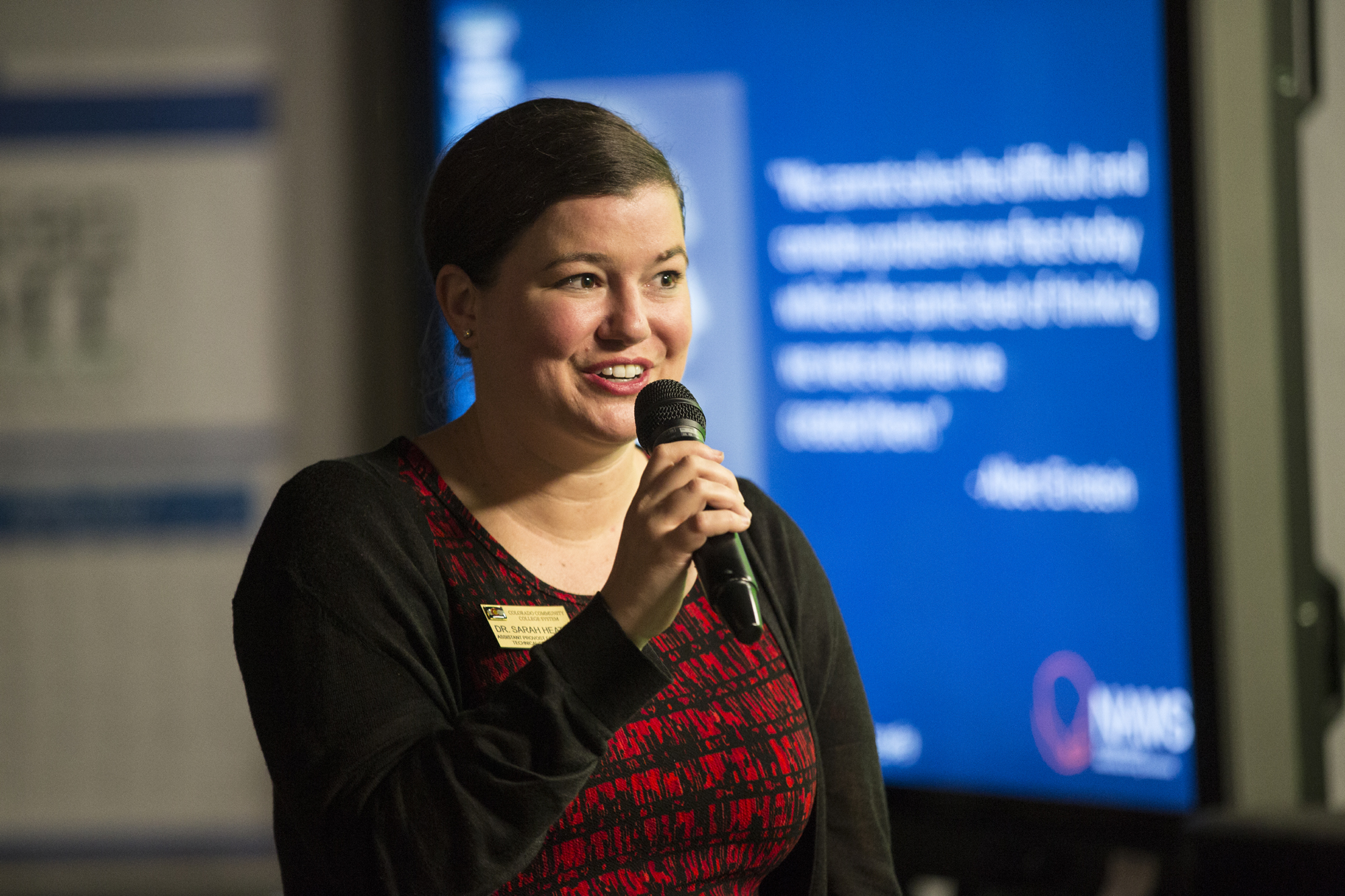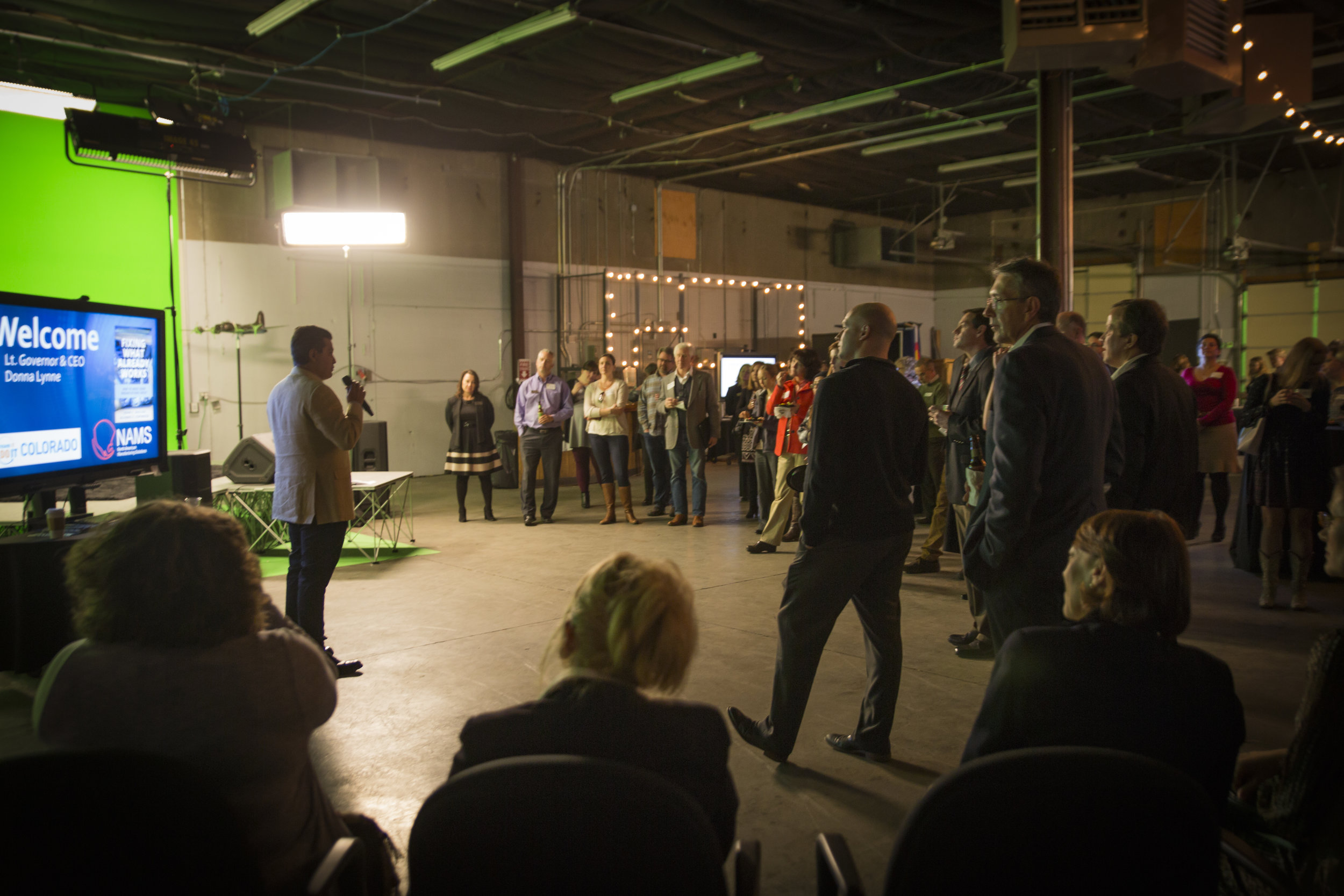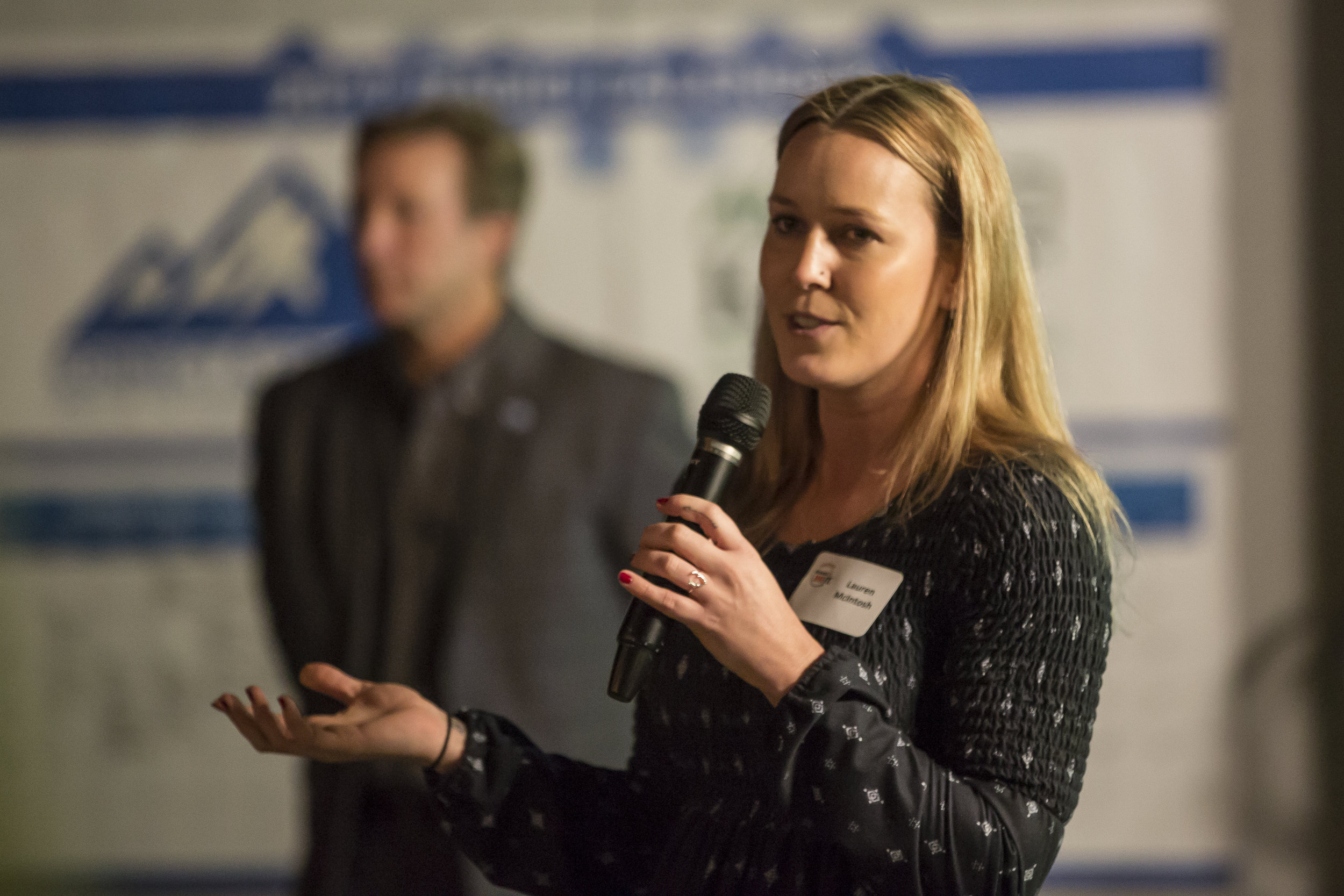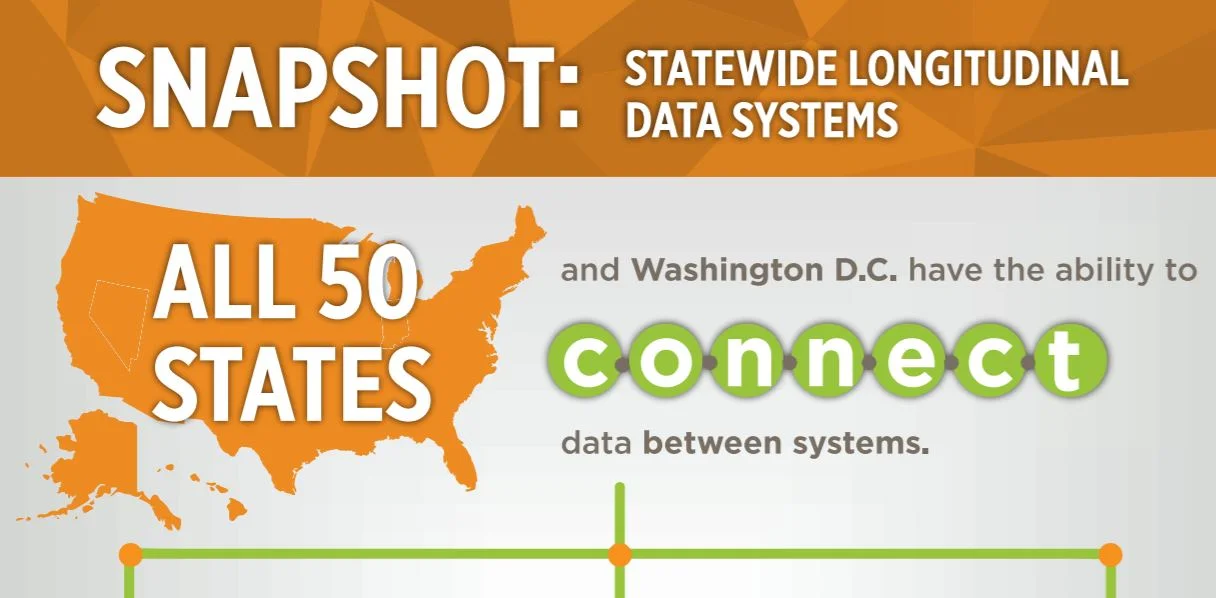Dear COBRT Members,
Colorado business leaders understand education is critical to our economic future and the success of all our students. Business leaders all across this great nation are engaging with educators to drive continuous improvement. We are excited to share with you a local opportunity to participate in this effort.
We are looking for business and industry representatives to share their expertise with education researchers and curriculum developers for high-school level courses in business administration. We are not soliciting your financial support; however, we are interested in your knowledge and experience as business professionals. This is an opportunity for you to help build a strong business education program in Colorado and across the country.
We are hosting three (3) breakfasts for your convenience. Each breakfast will be similar in content so there is no need to attend more than the one that is most convenient for you. We would like for you to learn more about this exciting opportunity and how you can play a role in shaping the coursework that Colorado students will experience. If you are unable to join us, we would appreciate if you would invite someone from your office to represent your organization.
Each meeting will begin at 7:30 a.m. with a networking session, and then the actual breakfast meeting will start at 7:45-9:00 a.m.
On March 16, 2017 we will meet at Springhill Suites on the campus of MSU Denver
On March 29, 2017 we will be at the Monfort College of Business at UNC Greeley
On April 5, 2017 we will be at the Colorado Springs Chamber of Commerce & EDC
Please RSVP to Laurie Urich at [email protected] by Friday, March 10, 2017 and be sure to let her know which meeting you are attending. In advance, we appreciate your support and hope that you or your designee will be able to join us.
Sincerely,
Jeff Wasden, President
Colorado Business Roundtable
Scott Laband, President
Colorado Succeeds
Dana Anderson, Program Director
Business and Marketing Education
Colorado Community College System
Laurie Urich, Project Manager
Business Engagement
MBA Research & Curriculum Center
Event Recap: Manufacturing Matters
Thank you to all our partners and attendees who made Manufacturing Matters such a notable event. It was held on January 25, 2017 at ICOSA Event Center. Lt. Gov. Donna Lynne officially proclaimed the date as "Dream It Do It Colorado Day" in honor of the Dream It Do It Colorado statewide manufacturing coalition. Partners included Colorado Community College System, Colorado Workforce Development Council, Manufacturer's Edge and Women in Manufacturing.
Manufacturing Matters also marked the first event in our Author's Series. Alvaro E. Espinosa, co-author of Fixing What Already Works: How to Make Good Organizations Great, spoke about how principles he learned in manufacturing can be applied to any operation to improve business.
During the event, Connect & Collaborate did a live streaming radio show as well. Click here to read, listen, and watch!
You can also check out the official Proclamation of Dream It Do It Colorado Day.
Dream It Do It Colorado (DIDICO) will hold another event this year and be involved with the Manufacturing Day initiative. Sign up for the DIDICO newsletter to stay in the loop.
Stackable Credentials: The Next Phase of Workforce Development
Although employers often have different opinions on workforce issues, research shows that they agree on one thing: the importance of an educated workforce. The question, however, is the definition of the word educated. In previous generations, formal education often halted when an individual found employment, with subsequent education gained through work experience. Due to advancements in technology, however, the traditional educational model is increasingly under attack over its ability to effectively help businesses to remain competitive. Today’s businesses need individuals with specific, up-to-date, relevant skills for their positions. One solution to this need is stackable credentials, which allows employers to find or maintain specific skillsets in their organizations. These short term programs also help employees enhance their value across a wide spectrum of industries and experience levels.
But what are stackable credentials and is there demand? According to Dr. Becky Takeda-Tinker, president and CEO of CSU-Global, stackable credentials are the wave of the future. “During the last recession, many engaged in or re-entered higher education to increase their job market viability. However, the expected return on investment didn’t necessarily materialize at the speed or magnitude desired,” said Takeda-Tinker. “If we experience another dip in GDP growth, I believe that we will see increasing numbers of people seeking short term upskilling opportunities. This kind of assistance will be found through alternative bootcamp and non-credit educational opportunities, and through short academic programs that employers can recognize and understand in their evaluation of potential employees.”
Stackable credentials refer to an accumulation of academically-based qualifications that provide verification of a small, defined set of skills and abilities. These targeted credentials can help job seekers be highly desirable to employers as they seek higher paying jobs or transitions to new roles. For example, a computer programmer might seek a certification in cyber security to obtain a more specialized role within her organization. Such credentials, when later stacked onto other credentials, can also help holders to obtain a credential on the path to a full degree. For job seekers or employees, stackable credentials are valuable investments that can increase their market competitiveness and provide a tangible return-on-investment.
For employers, as technology continues to advance, identifying employees with specific skillsets will become increasingly important. In order to maintain competitiveness, employers will benefit from both investing in the upskilling of current employees, and hiring employees that understand the value of lifelong learning and demonstration of knowledge through programs that include stackable certificates. It is clear that the increasing scarcity of time and money driven by technology and globalization has necessitated change in many things in our world today. This change now includes formal education, making it an exciting time to be experiencing a broadening of opportunities for both employer and job seeker success.
Colorado State University-Global offers stackable credentials through 100% online certificate programs. For more information on how you, or your employees, can take advantage of these programs, visit csuglobal.edu/undergraduate/certificates.
Why Friday the 13th Might Matter for Your Business
We know better, we really do. We live in an age of explanation, where telephones have become powerful portable computers and we track every second of a satellite's journey through space. There's no rational reason for Friday the 13th to be any more or less fortunate than the other 364 days in a year. Yet, many people still approach the date with apprehension, if not dread. This can have a dramatic toll on companies. Superstitious or not, the impact of this calendar setting is palpable.
According to CNBC, "The Stress Management Center and Phobia Institute estimates between $700 million and $800 million are lost every Friday the 13th because of people's refusal to travel, purchase major items or conduct business." Other estimates even put that at $900 million lost on Friday the 13th.
Friday, October 13, 1989 was a particularly difficult day for business. The Telegraph reports how, on "a day that is now often referred to as Black Friday, the failed $6.75bn buyout deal for United Airlines’ parent company sent global markets plunging."
Another fateful Friday the 13th was in October 2012 when the Costa Concordia cruise liner ran aground off the Italian coast, killing 32 passengers and crew plus one salvage member. If the date itself doesn't send shivers down your spine, The Daily Mail shared these eerie photos of the sunken ship.
Those are disasters for large companies, but Quickbooks Intuit explains how small businesses are greatly affected by the date as well. Fear of Friday the 13th even has a name: friggatriskaidekaphobia. This year, 2017, offers two chances to test the date. Our next Friday the 13th is in October.
Has your business ever been impacted by Friday the 13th? Are your employees or colleagues wearing garlic around their necks or avoiding travel today? Maybe you've had a very fortunate day so far! We'd love to hear about it in the comments below.
Leadership Minor, Speaker Series Probe Question of What Makes a Great Leader
The University of Colorado Boulder is sharpening its focus on leadership, offering a thriving minor, a speaker series launching next month with a visit by former Secretary of Defense Robert Gates and new courses aimed at fostering leadership in students with a diverse array of backgrounds and career paths.
“It is a common refrain you hear from employers in both the nonprofit and for-profit sectors. We need more leaders, better leaders and more effective leadership,” says former CU Boulder President Alexander Bracken, who now holds the Quigg and Virginia S. Newton Endowed Chair in Leadership.
According to one recent survey by Payscale.com, 44 percent of hiring managers say recent college graduates lack leadership skills. To fill the gap, CU Boulder in 2014 launched a new Leadership Studies Minor designed to reach across all colleges, complement any academic major and be open to any undergraduate. Today nearly 400 students – from artists and dancers to physicists and future physicians - are pursuing it. To manage the rapid growth of the program, now housed in the School of Education, CU Boulder recently hired a new program director and is adding course sections to keep class sizes small.
Courses for the 16-credit minor cover everything from leadership theory to the exploration of benevolent and toxic governmental leaders across the globe and throughout history and the value of good writing in affecting change. Students also put their leadership lessons to work via partnerships with community organizations.
Integral to the minor, and to the university’s broader leadership focus, is the idea of exposing students up-close and personal to people who have effectively led people.
To do that, CU Boulder launched the Leo Hill Distinguished Leadership Speaker Series, which kicks off Tuesday, Feb. 28, with a public lecture and classroom visit by Gates. Gates served as secretary of defense under George W. Bush and became the only secretary of defense in U.S. history asked to remain in that office by a newly elected president, Barack Obama.
“He was an amazing bi-partisan leader who was not afraid to ask questions and challenge the normal ways of operating across party lines,” says Kira Pasquesi of Gates. Pasquesi is the program director and an instructor for the leadership minor.
Pasquesi says effective leaders are good listeners, team builders and critical thinkers who have moral courage and keep ethics in mind when framing their decisions. But she says students often have to unlearn certain things they assume about what a leader looks like or what position leaders hold in companies and organizations.
Today’s effective leaders are “less hero” and “more host,” less “all-powerful knower and manager” and more “facilitator who is attentive to people’s needs and recognizes leadership as a process of shared visioning,” she said.
Most importantly, according to Paquesi, students are encouraged to do some self-reflection and identify their own unique leadership skills and the ways they might be able to apply them today in their daily lives and relationships with co-workers.
Lakshmi Karamsetti is doing just that.
She will graduate this May with a major in molecular, cellular, and developmental biology and a minor in leadership studies, which she credits with helping her discover leadership qualities she never knew she had.
“You don’t have to serve in a leadership position specifically to be a leader, but you do need to believe that you can affect change,” says Karamsetti.
She’s now applying to medical schools and hopes to ultimately get a combined medical and master of business administration degree. Someday, she’d like to craft health care policy.
Tickets for the Gates event are free. They will be available to CU Boulder students, faculty and staff on Wednesday, Jan. 25, and to the public on Wednesday, Feb. 1, at http://www.robertgates.eventbrite.com.
-CU-
The Power of Networking
As a female in a heavily male-dominated industry, I am always excited to see the impact we can make as a group by supporting and empowering one another. By building a strong network of support, women can achieve success both in business ownership and through growth within large organizations.
Currently, only 14.6 percent of senior executive positions are held by women. Among senior women executives, 10 percent say they had the aid of four or more executives in helping them advance, compared to their male counterparts at 17 percent. Yet more than half of the senior women acknowledged that it is important to have support from higher-level seniors in order to advance.
Women must embrace the power of networking. Leadership today is no longer just about the results you produce. Your ability to connect with others, how you incorporate perspectives and navigate groups proves just as important. Explore the networking opportunities within your company. Often times, larger companies have established internal groups dedicated to helping female employees build their Rolodex of connections. If not, I encourage you to start one – not only will that show your superiors that you’re taking charge, but you’ll also provide a new resource for your colleagues.
Networking is also beneficial to women business owners. Women currently own 36 percent of all businesses – a jump of 30 percent from 2007. Learning best practices from other business leaders helps to you grow your own business. It not only allows women to see examples of success and failure but also get to know others in a wider variety of industries to help foster deeper business relationships.
By fostering a strong network of women, we are able to access a treasure chest of resources and tools that can help women in need from all walks of life to improve their situations and position themselves for success.
Shelley Ford is a Financial Advisor with the Pelican Bay Group at Morgan Stanley in Denver. She can be reached at 303-572-4839 or [email protected].
CEI Appoints Experienced Colorado K-12 Champion as President and CEO
FOR IMMEDIATE RELEASE
December 6, 2016
Contact Information:
Melissa Reeves
720-502-4756 work
303-856-8098 cell
[email protected]
Denver, Colorado – The Colorado Education Initiative’s (CEI) board of trustees is pleased to announce the appointment of the organization’s new President & CEO, Rebecca Holmes, who joins the CEI team in January 2017.
“We’re excited that Rebecca is joining the CEI team,” said CEI Board of Trustees Chairman Leroy Williams. “Her experienced leadership, vision, and passion for making a difference in Colorado education is contagious — while she understands the dynamics and unique challenges of Colorado’s K-12 public education system. Her wealth of experience and ability to partner and collaborate will be great assets in advancing CEI’s mission to help all students achieve success.”
Starting her education career as a teacher in Denver’s Cole neighborhood, Holmes is a proud alumna of Colorado’s public schools, a graduate of Yale University, and holds an MBA from Harvard Business School.
Holmes brings an extensive background in K-12 education and organization leadership to guide the next chapter in CEI’s development and has held several leadership positions in Colorado education focused on innovation and student outcomes. She has also worked for several Colorado philanthropic foundations and has private-sector experience with Deloitte Consulting — where she worked with a variety of clients on change management, talent strategies, and organizational design.
“CEI has played an important role in classrooms, schools, and districts across Colorado and it will be a privilege to lead the next phase of that work,” said Holmes. “Our state’s future depends on what we provide now for our students and CEI has proven it can be a partner and a catalyst in helping leaders on the ground take learning to the next level.”
Holmes leaves the local Gates Family Foundation as their Senior Program Officer for Education to join CEI’s team and was previously at the Colorado Department of Education (CDE) as the Associate Commissioner for Innovation, Choice, and Engagement. Prior to CDE, Holmes served as the CEO of a public charter school network serving over 90 percent low-income students.
About The Colorado Education Initiative
The Colorado Education Initiative is an independent nonprofit working in partnership with the Colorado Department of Education, educators, schools, districts, and other public education stakeholders to accelerate educational improvement and innovation across Colorado. CEI envisions that every student in Colorado is prepared and unafraid to succeed in school, work, and life, and ready to take on the challenges of today, tomorrow, and beyond.
Minding the Gender Wage Gap
Currently, women are earning an average of $11,000 less than their male counterparts – with the gender wage gap only increasing as we age. If we want to eliminate that gap, then negotiation will be imperative. However, studies have found that while 50 percent of men are more likely to negotiate their salaries, only 1 in 8 women do the same. Perhaps their apprehension derives from a lack of confidence or a lack of know how. Here are some tips that may help women be more successful negotiators.
• Have a clear idea of your goals and what you want to see accomplished through the discussion. Know who you’re negotiating with and know what they want.
• Research statistics that will help your case, such as how much your industry typically pays for a similar role.
• Build your confidence by practicing. Start small, try negotiating for a better price at a garage sale.
• View the situation from the other’s perspective. Negotiate using their needs and state how they stand to benefit by proposing a win-win proposition.
• Reach out to a mentor if you have one. They will be great source for advice as they would have likely experienced a similar situation in their own careers.
• Use language that firmly gets your point across, such as “this will be one of the few times that you and I are at the opposite ends of the table.” Don’t be tempted to fill the periods of silence during a negotiation.
• If you need to calm down, ask the other person to clarify what they’re saying to give you some time to pull yourself together.
While the gap between men's and women's earnings has been steadily narrowing in the last decade, full wage equality has yet to be achieved. It’s time for us to take some control over our financial future. With more understanding and self-awareness, we can work to close the gender wage gap.
Shelley Ford is a Financial Advisor with the Pelican Bay Group at Morgan Stanley in Denver. She can be reached at 303-572-4839 or [email protected].
The Swiss Education Model and Colorado
There is a pipeline problem in Colorado. The kind that sends natural resources to industry, and contributes to our competitiveness as a state. We’re talking about the talent pipeline, which is vitally important to our success. Many different groups have addressed this issue, from the Colorado Legislature to local nonprofits. A venture that is gaining momentum, CareerWise Colorado, recently led a delegation to Zurich, Switzerland to investigate the Swiss model of apprenticeships and higher education, with the hopes of bringing best practices to Colorado. A forthcoming collaborator on the initiative is Colorado State University-Global Campus (CSU-Global), a 100% online state university.
Dr. Becky Takeda-Tinker, president and CEO of CSU-Global, participated in the CareerWise Colorado’s apprenticeship delegation to Switzerland. The delegation, which brought together education, government, business, and policy experts, visited industry associations, apprenticeships sites, schools, and training centers.
“As a university committed to creating economic growth and opportunity in Colorado, we are very interested in the opportunity to partner with the business community for the identification of pathways that integrate internships and apprenticeships leading into formal education models,” said Takeda-Tinker. “We currently provide credit for our own internship and practicum programs, and are seeking new partnerships that will expand credit opportunities for vocational and community college students.”
CareerWise Colorado is a nonprofit organization that seeks to utilize the Swiss apprenticeship model as inspiration for a collaborative skill gap solution that unites the business and education community. For CSU-Global, this mission aligns with the university’s commitment to workplace success through education for modern learners.
“It is vitally important that students, particularly Generation Z, see the applicability of their schoolwork in the workplace. By encouraging students to pursue internships or apprenticeships that are integrated with their formal education leading to a bachelor’s degree, this initiative is an important step toward expanding opportunity to engage students who might otherwise be left on the sidelines of higher education,” said Takeda-Tinker.
In addition to CSU-Global’s potential participation, the University of Colorado and the Colorado Community College System are reviewing the opportunity as well.
For more information about Colorado State University-Global Campus, visit csuglobal.edu
For more information about CareerWise Colorado, visit careerwisecolorado.or
Investing in Gender Diversity
"Investing in Gender Diversity" is Part 1 of a three-part print series from Shelley Ford, financial advisor with Morgan Stanley in Denver, on the role of women in business. Stay tuned for Parts 2 and 3!
Gender diversity in the workplace has always been a hot button issue among the media and public. Arguments for more female participation in the workplace and in senior positions are often founded on the principle of equality. However, many forget that that a better balance of men and women in the workplace can also deliver an improved bottom line.
Gender diversity in the workplace is not just the promotion of one gender over the other. It is about how a balanced representation and inclusion among genders can broaden perspectives and drive value. Morgan Stanley research shows that companies with higher levels of gender diversity have moderately outperformed their low diversity or sector peers on average in the past five years. Furthermore, a recent Harvard Business Review study also found that there is no meaningful difference in performance between women and men-led start-ups when financing is provided by venture capital firms with female partners.
Recent trends show that investors are becoming more likely to invest in companies that align with their values. No longer do investors that seek to create social good need to accept unattractive returns. If gender diversity is an issue you care about, consider investments in companies with greater representation of women on Boards of Directors and in senior leadership, and in funds focused on women’s healthcare solutions or increasing access to capital for women entrepreneurs in developing companies.
From gender equality to environmental concerns, investing in organizations that are consistent with your personal belief can sometimes help drive positive change - while still realizing financial returns. Explore options with your financial professional that will help you invest with your values without sacrificing your long term financial plan.
Shelley Ford is a Financial Advisor with the Pelican Bay Group at Morgan Stanley in Denver. She can be reached at 303-572-4839 or [email protected].
50-State Comparison: Statewide Longitudinal Data Systems
With states increasing their focus on supporting successful educational outcomes for students and developing strategies to meet workforce demands, examining data that connects from a student’s early education years to their postsecondary education can allow states to analyze the data in a different and more complex way. However, the structure of data systems and the policies regarding these systems can vary from state to state, with some states not yet having established a Statewide Longitudinal Data System (SLDS).
This new 50-State Comparison: Statewide Longitudinal Data Systems from Education Commission of the States provides a national comparison of how all 50 states plus Washington, D.C., approach policies related to SLDS.
“As states tackle complex policy issues spanning the P20W spectrum - early learning, K-12, postsecondary and workforce – longitudinal data plays a vital role in informing educational policy,” said Brian Sponsler, vice president of policy at Education Commission of the States. “This 50-State Comparison can serve as a comprehensive resource to policymakers as they look to address issues specific to their state through data analysis.”
Some key takeaways from this report:
- All 50 states plus Washington D.C., have the ability to connect data between systems.
- Thirty-eight states plus Washington D.C., connect data between at least two of the four core systems - early learning, K-12, postsecondary and workforce.
- Seventeen states plus Washington D.C., have a full P20W system - a data system that connects data from all four core agencies (as defined in this comparison) across the education spectrum.
For questions, contact Education Commission of the States Communications Director Amy Skinner at [email protected] or (303) 299.3609.
IBM Supports P-TECH in Colorado with St. Vrain Valley Schools
Colorado Business Roundtable recently had the opportunity to learn with Business Roundtable member and global innovation leader IBM at a variety of events supporting STEM education in Colorado. You can catch our interview with Stanley Litow, Vice President of Corporate Citizenship and Corporate Affairs at IBM, on Connect & Collaborate radio/podcast on November 1!
International Business Machines Corporation (IBM) is the largest technology and consulting employer in the world. It co-developed the “Pathways in Technology Early College High School” (P-TECH) school model in which public school students can earn an associate degree in a Science, Technology, Engineering, or Math (STEM) field in addition to high school diplomas. They also develop workplace skills through mentoring and internships.
In just five years since the first P-TECH school launched, there are now at least 60 P-TECH schools in six states around the country, with three of the newest here in Colorado. In January 2016, the Colorado Department of Higher Education and Colorado Department of Education approved one in St. Vrain Valley School District and another in El Paso County School District 49. Shortly after, a third Colorado P-TECH school was announced for Northglenn High School (Adams 12).
A key element of the P-TECH model is public-private partnership, which is an opportunity for business to shape the workforce it needs. As a co-developer of the model and a longtime employment leader in the area, IBM is in partnership with St. Vrain Valley School District and Front Range Community College. Last week, IBM hosted two special events for students and supporters, the St. Vrain Valley Schools’ P-TECH Program Mentoring Event and the 2016 Innovation Gala.
The mentoring event on October 21, 2016 invited students to "join district and IBM leaders for a morning of engaging presentations and project-based learning activities that are preparing students for 21st century careers in computer information systems." As the photos show, this event was designed for district and IBM mentors to meet the students they are mentoring and together complete a mentor-student project.
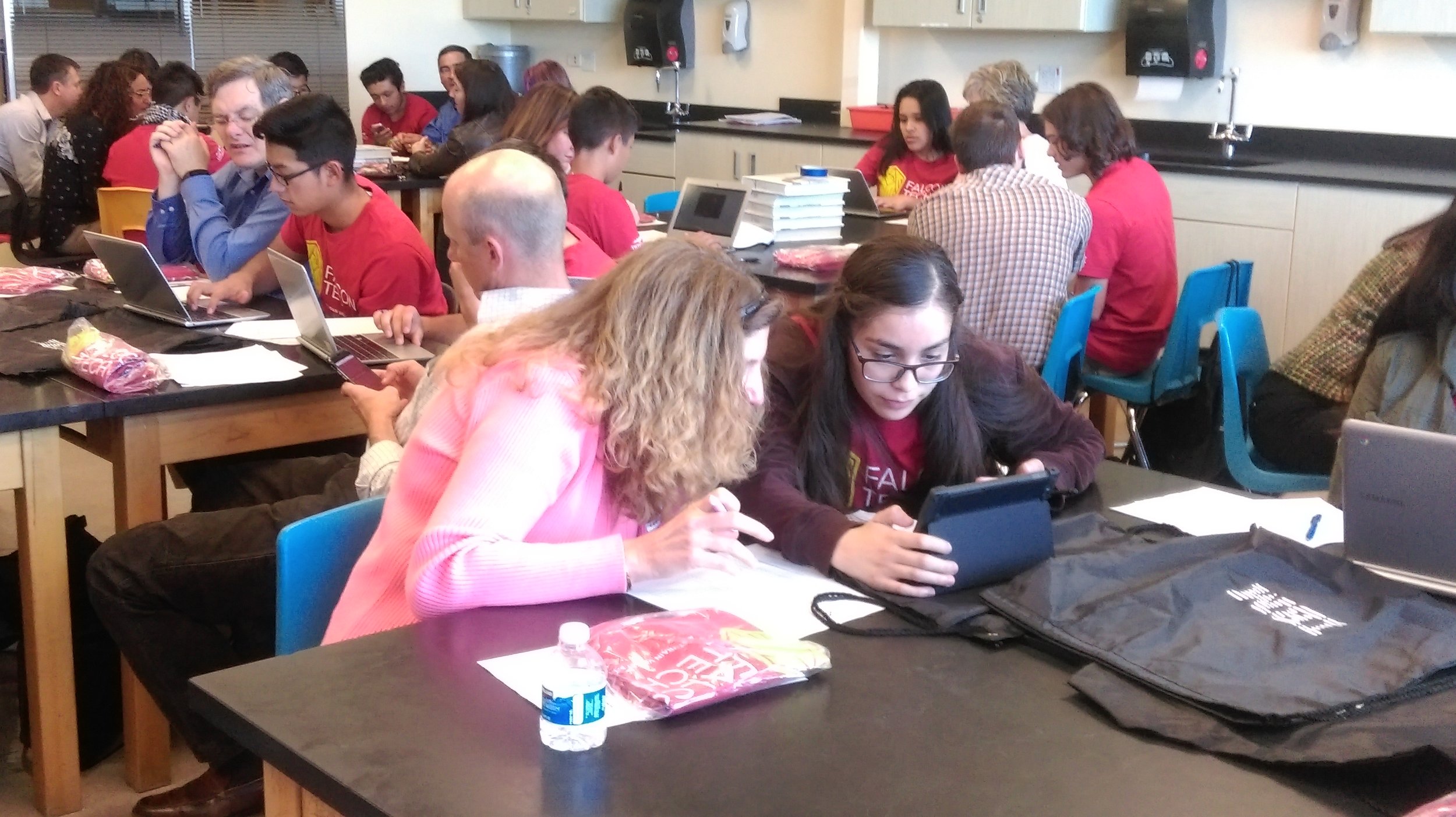
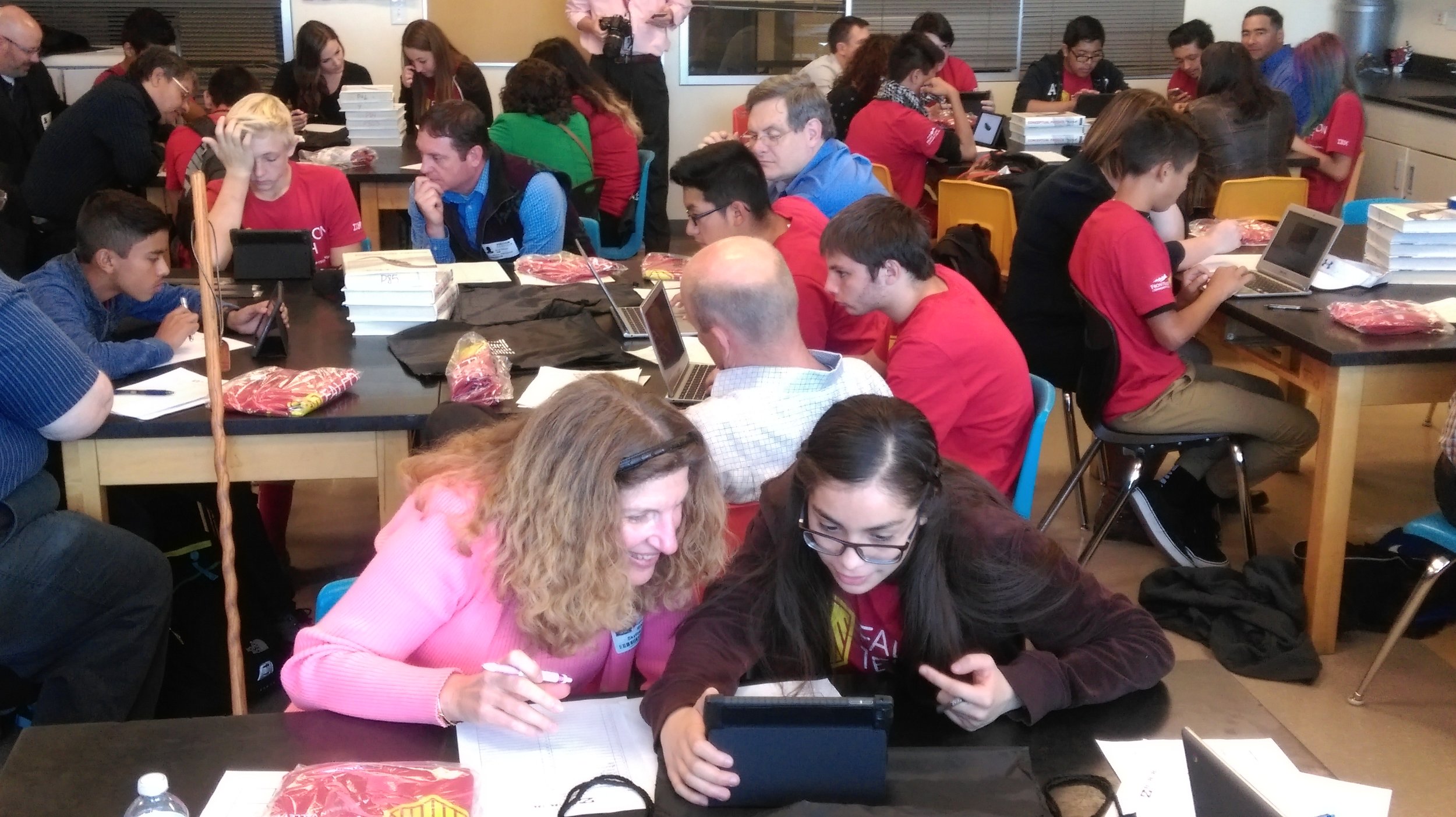
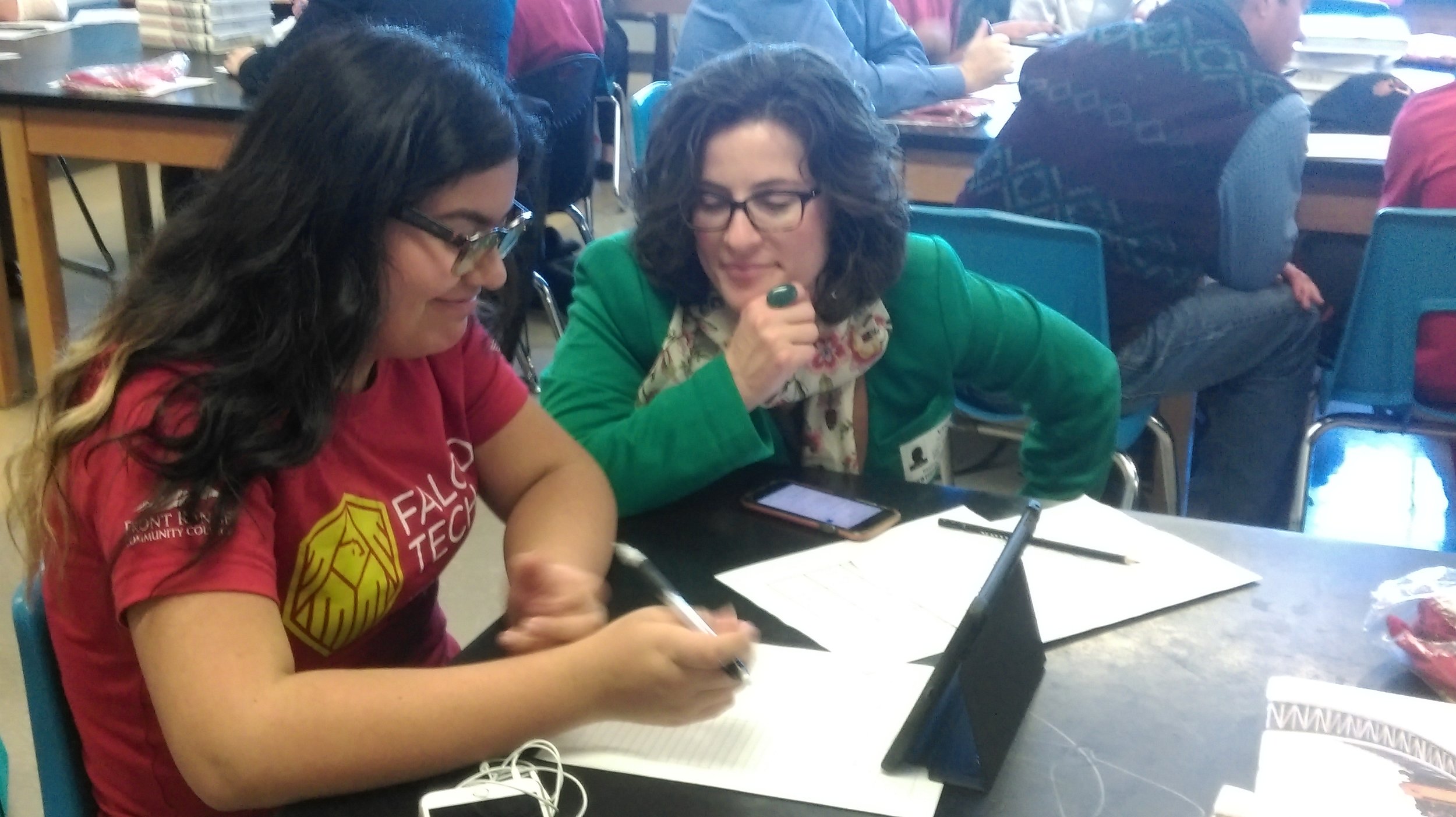
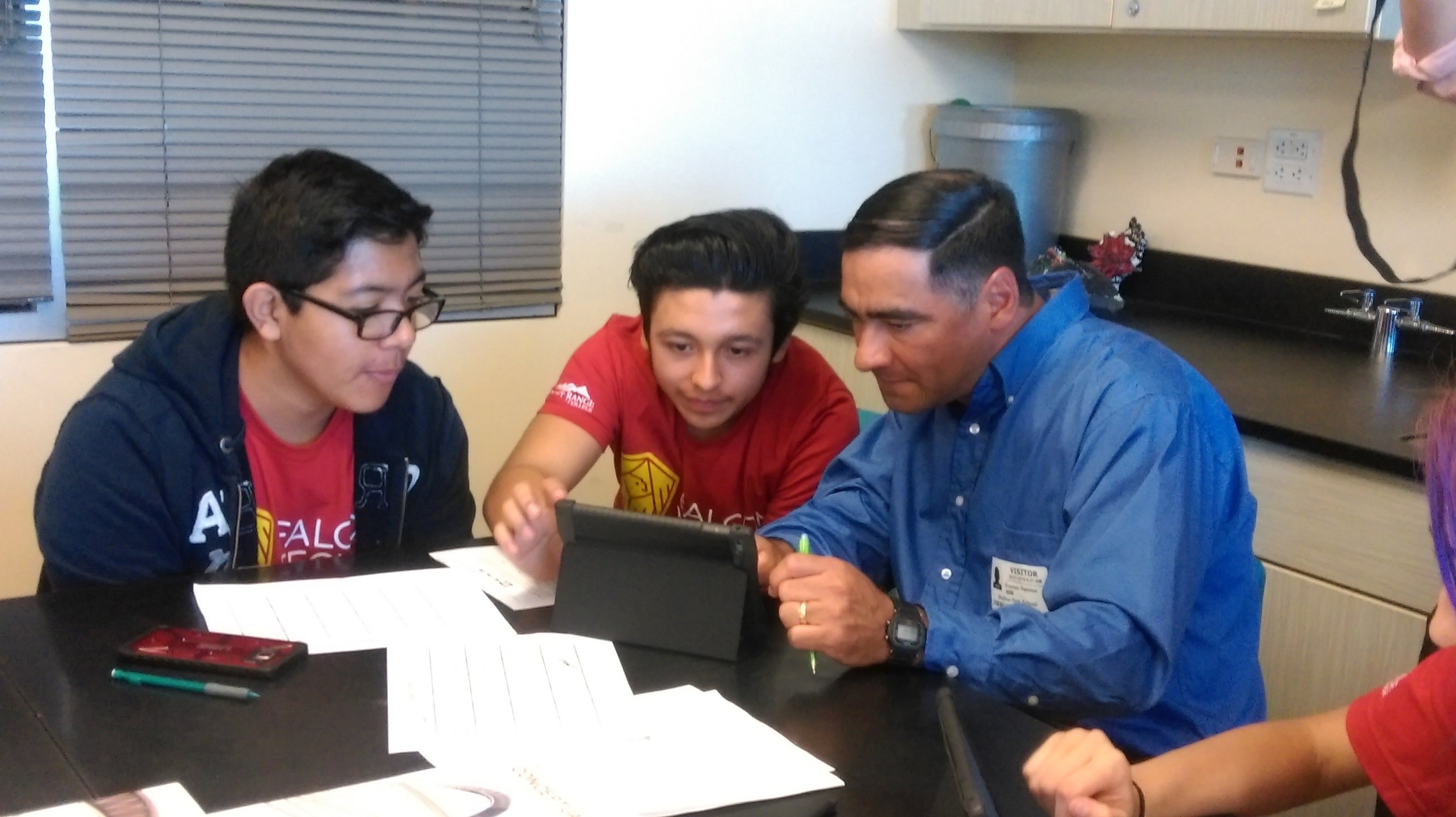
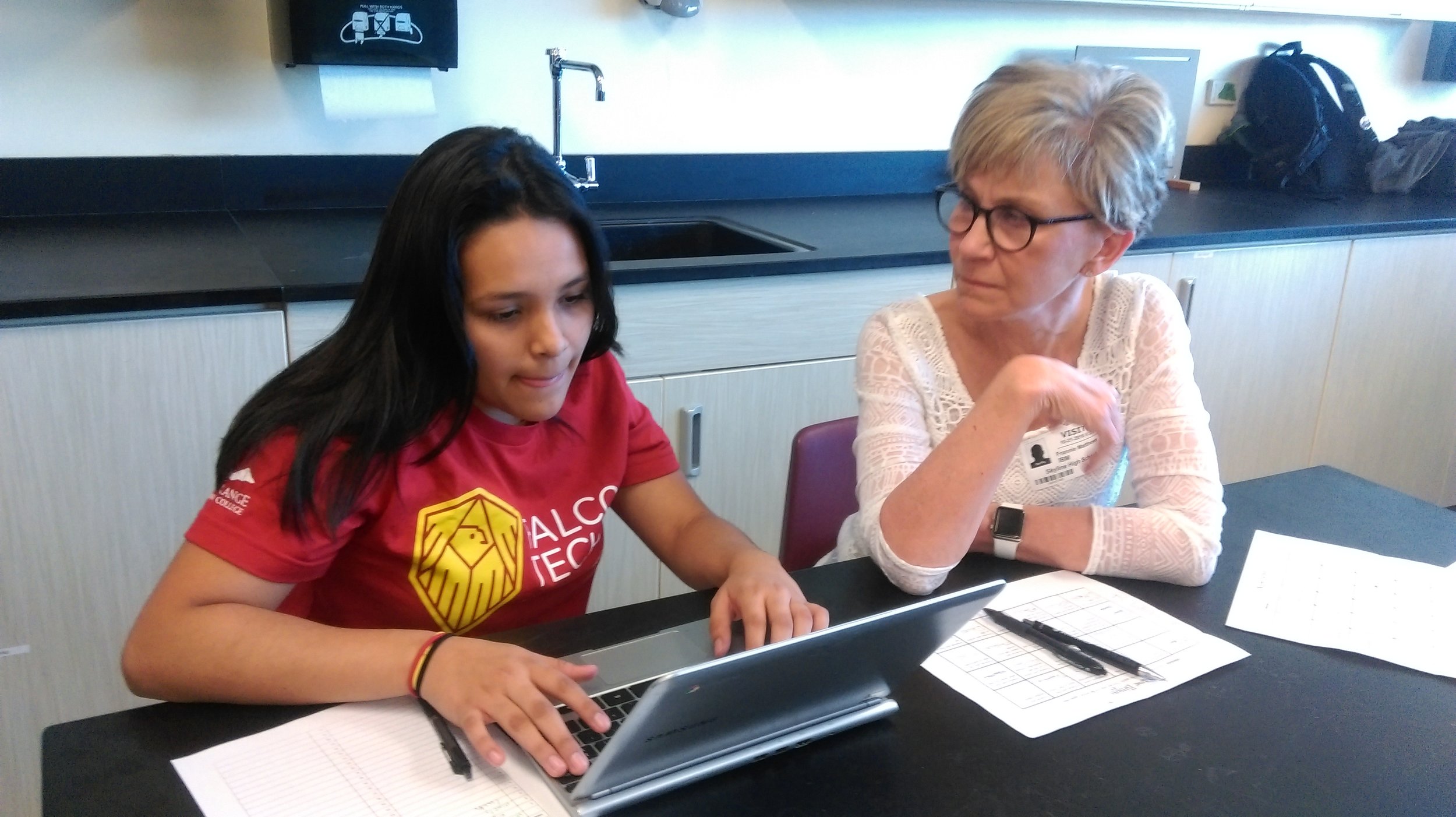
Later, it was on to the first-ever Innovation Gala. Key note speakers for the evening were Colorado Lieutenant Governor, Donna Lynne, and the Vice President of Corporate and Citizenship Affairs at IBM, Stanley S. Litow. Litow also spoke at the mentoring event.
Students from the Innovation Center and St. Vrain's P-TECH program also participated in a panel to discuss the value of an education in St. Vrain Valley and answer audience questions about the impact of P-TECH and Innovation in their day-to-day lives. Proceeds from the Innovation Gala will be directed to the Education Foundation of St. Vrain Valley's general fund which is used to impact the students, educators and the community of St. Vrain Valley.
FURTHER RESOURCES
For more information on P-TECH, visit www.ptech.org. IBM developed a free website to help school districts, higher education institutions, and businesses expand the P-TECH model.
Visit the Colorado Department of Higher Education's P-TECH page.
P-TECH is one of Colorado Succeeds' Lead Initiatives.
Articles and Op-Eds:
- "To fix our schools, build on P-TECH: A Brooklyn school should guide a new national reform conversation" on New York Daily News by IBM's Stanley Litow
- "P-TECH: Tackling Youth Unemployment One Student At A Time" on Forbes by IBM's Stanley Litow
- "Bipartisan Education Bill Signed" in ICOSA Magazine by IBM's Ray Johnson
- "Reaching the true potential of Colorado’s workforce" on Denver Post by Colorado House Majority Leader Crisanta Duran
Colorado Latino Hall of Fame
The Latino Leadership Institute at DU has reached a splendid achievement in establishing an homage to the Latino leaders who have made significant contributions to the State of Colorado for centuries. The Colorado Latino Hall of Fame's first members were inducted Tuesday evening, October 18, 2016.
The evening provided many highlights, first as Governor John Hickenlooper marveled at the great leaders to be inducted, including honorable Federico Peña. Hickenlooper said, "There has not been anyone of any ethnicity, who has done more for Colorado than Federico Peña."
As the awards were presented, we learned more about each inductee through video tributes, In one, Dr. Joe Vigil, honored for his seven decade coaching career and as the professor of altitude training said, "I was only coaching human performance, I became a mentor."
Federico Peña acknowledged, "I was able to see the value of my work every day, and that was very rewarding."
The Colorado Latino Hall of Fame seeks to honor Latinos from all sectors, who have contributed to the betterment of Colorado and it's citizens. The inaugural inductees include;
- Honorable Federico Peña, first and only Latino Mayor of Denver, Secretary of the Departments of Transportation and Energy, for Public Service
- Rod Tafoya, enterprising businessman known for his restaurants and shops in the concourse of first, Stapleton Airport, then Denver International Airport, for Business, Innovation, Science, and Technology
- Dr. Joe Vigil, pursuer of success, and coach at Adams State, who coached 425 All American Athletes, and 21 Olympians, for Arts, Entertainment, Media, and Sports
- Susana Cordova, champion for education, whose four decade career in Denver Public Schools spanned every level of K-12 education as teacher, department chair, principal and currently as Deputy Superintendent, for Unsung Hero
- Salazar Family Foundation, starting with Rob and Lola, success business owners and philantropic leaders. The couple founded the Salazar Family Foundation in 1999 with a mission to encourage Denver-area students to achieve their educational dreams, for Philanthropy and Community Service
- Las Animas County Senator Casimiro Barela, inducted posthumously, was the Father of the Colorado Senate, serving for 40 years in the Colorado State Legislature, he ensured that the Colorado Constitution was printed in English, Spanish and German for the sake of all citizens participation in Government, for Legacy
After honoring all six inaugural inductees, Joelle Martinez, Executive Director of the Latino Leadership Institute, spoke of the inspiration in her own family. She was specifically inspired by her grandmother, Ramona Martinez, who served as the first Latina President of the Denver City Council. She quoted, "It's important to be the first but our real obligation as leaders is to ensure that we are not the last."
Joelle lives up to those words through her work with the LLI and the Colorado Latino Hall of Fame.
There may be Latino Halls of Fame in other states, but none are backed by a program like the Latino Leadership Institute, which promotes Latino representation in leadership roles. The Institute is a rigorous nine-month certificate program for professional and executive Latinos. The Institute is supported by the University of Denver, which helps to offer a robust curriculum and practical application for the LLI Fellows, where they receive instruction in business, government, civic and non-profit leadership. In December 2015, the Institute graduated 19 fellows, thus far two-thirds of that Alumni have been promoted or appointed to a leadership position.
There are currently two cohorts of Fellows in the program, and applications are being accepted for the Winter 2017 Cohort.
Most inspiring was seeing both the graduated and current Fellows line the stage at the end of the evening. These Fellows represent the future of Colorado's Latino Leaders, and the mind races to consider what they will accomplish in coming years.
CU Boulder’s Keith Maskus Tapped as Chief State Department Economist
University of Colorado Boulder Professor of Distinction Keith Maskus has been named the U.S. Department of State chief economist. Maskus, who was the director of CU Boulder’s Program on International Development, is beginning the two-year appointment, based in the District of Columbia, this month.
“As an international economist, I see this as a great opportunity to help inform global understanding of the world economy and the important roles played by the United States in shaping that economy,” said Maskus, an economics professor and former associate dean of social sciences at CU Boulder’s College of Arts and Sciences. “I also see it as a way to use sound economics to support international policy discussions on such important issues as climate change and monetary systems.”
Established in 2010 to integrate more economics research data and expertise into State Department issues, the position involves research and policy development, as well as presentations at venues around the world.
The Office of the Chief Economist is an analytical resource not only for the State Department, but also for embassies and consulates overseas. It also supports foreign service officers in building the networks and experiences needed to advance U.S. economic and commercial goals, according to the State Department website.
Reporting through the undersecretary for economic growth, energy and the environment to the secretary of state, Maskus will provide strategic advice and analysis on emerging economic issues. This includes priority issues where economics and foreign policy intersect, as well as researching long-term global trends with economic foundations.
Maskus has held research fellowships, visiting scholar, adjunct professor and other positions everywhere from the University of Adelaide in Australia to the University of Bocconi in Milan, Italy, the University of Munich in Germany and Peking University in China. He also has served as a consultant for the World Bank and the World Intellectual Property Organization.
Maskus has written extensively about various aspects of international trade and foreign investment, among other topics. His current research focuses on the international economic aspects of protecting intellectual property rights.
He received both his doctoral and master’s degrees in economics from the University of Michigan. He received his bachelor’s degree in economics and mathematics from Knox College in Galesburg, Illinois.
-CU-
Contact:
Keith Maskus, 303-495-9294
[email protected]
Elizabeth Lock, CU Boulder media relations, 303-492-3117
[email protected]
Learn more here: Q&A: Maskus discusses transition from Boulder to Capitol Hill
The State of American Jobs
How the shifting economic landscape is reshaping work and society and affecting the way people think about the skills and training they need to get ahead
WASHINGTON, D.C. (Oct. 6, 2016) – A changing economic landscape is driving significant shifts in the American workplace. Employment opportunities increasingly lie in jobs requiring higher-
level social or analytical skills, while physical or manual skills are fading in importance, according to a new Pew Research Center survey conducted in association with the Markle Foundation.
Not coincidentally, an analysis of government jobs data finds that employment is rising faster in jobs calling for greater preparation. The number of workers in occupations requiring average to above-average education, training and experience increased 68% from 1980 to 2015. This was more than double the 31% increase in employment in jobs requiring below-average education, training and experience.
For their part, the vast majority of U.S. workers say that new skills and training may hold the key to their future job success. New survey data find that 54% of adults in the labor force say it will be essential for them to get training and develop new skills throughout their work life in order to keep up with changes in the workplace, and another 33% say it will be important to do so. Workers are acting on this belief, with 45% saying they’ve taken a class or received training in the past year to learn, maintain or improve their work skills.
Americans believe the responsibility for preparing and succeeding in today’s workforce starts with individuals themselves. Roughly seven-in-ten (72%) say that individuals have “a lot” of responsibility to make sure workers have the right skills and education to be successful, while
60% believe public K-12 schools should bear a lot of responsibility for this. Smaller shares say colleges and universities (52%), employers (49%), state governments (40%) and the federal government (35%) should have a lot of responsibility.
A majority of Americans (65%) say that good jobs are difficult to find where they live, but views of the situation have improved since the height of the Great Recession. However, on the whole, American workers are generally satisfied with their own jobs: 49% of American workers say they are very satisfied with their current job, while three-in-ten are somewhat satisfied. And most Americans overall feel their own jobs are secure; 60% of employed Americans say it is not at all likely that they will lose their job or be laid off in the next 12 months.
The earnings of workers overall have stagnated since 1980, lagging behind gains in labor productivity. Moreover, smaller shares of workers received health or retirement benefits from their employers in 2015 than did in 1980. More recently, alternative employment arrangements, such as contract work, on-call work and temporary help agencies, appear to be on the rise.
As they look at the future, large numbers of Americans believe the demands on workers will intensify and job security will diminish in the coming 20 to 30 years. Roughly seven-in-ten Americans (71%) say that workers will have to improve their skills more often in the future in order to keep up with job-related developments. About half (51%) think there will be less job security in 20 to 30 years, and a plurality (44%) believes employee benefits will not be as good in the future. When it comes to worker loyalty, 43% say employees will show less loyalty to their employers in the future, while an identical share believe the current levels of loyalty will prevail.
The new report, based on an analysis of Department of Labor and Current Population Survey data and a national survey conducted May 25-June 29, 2016, among 5,006 adults (including
3,096 employed adults), examines trends in the labor market and how they are playing out in the lives of American workers.
Among the findings:
- Americans see outsourcing jobs and imports of foreign goods as the greatest harms to U.S. workers, but they believe exporting more U.S. products abroad helps U.S. workers. As they assess the factors that may be hurting U.S. workers, 80% say outsourcing hurts American workers, and 77% say the same about more foreign-made products being sold in the U.S. Many also cite the increased use of contract and temporary workers (57%) and the decline of union membership (49%) as harmful factors. The impact of immigrants and automation draw more evenly divided verdicts. On the other end of the spectrum, majorities think exports of U.S.-made products (68%) and work-enhancing technology such as the internet and email (70%) help U.S. workers.
- Americans are less worried about immigrants’ impact on jobs than they were a decade ago. Today, 45% of adults say that the growing number of immigrants working in the U.S. hurts workers, and 42% say having more immigrants helps workers. This is a noteworthy change from 2006, when there was a nearly two-to-one view that the growing number of immigrants hurts U.S. workers (55% vs. 28% who said immigrants help workers). Democrats, blacks and those with less than a high school diploma are all notably more likely now than in 2006 to think the growing number of immigrants helps workers.
- The shifting demand for skills in the modern workplace may be working to the benefit of women. Women, who represent 47% of the overall workforce, make up the majority of workers in jobs where social or analytical skills are relatively more important. Wages are rising much faster in those jobs, which has likely contributed to the shrinking of the gender pay gap from 1980 to 2015.
- People have been staying at their jobs longer in recent years. In 2014, about half of workers (51%) had worked for their current employer five years or more, compared with 46% of workers in 1996.
- Educational attainment is a clear and consistent marker when it comes to feelings about job security and future prospects. While 39% of those without a high school education say it is very or fairly likely they may be laid off in the next 12 months, only 7% of those with a bachelor’s degree or more say the same. Those with lower levels of education also are more likely to feel their current skills are insufficient for career advancement and to think there are not good jobs locally.
- Americans have somewhat mixed attitudes about the effectiveness of traditional higher education institutions. While many college graduates describe their own experience as having a positive impact on their personal and professional development, just 16% of all Americans think that a four-year degree prepares students “very well” for a well-paying job in today’s economy. An additional 51% say this type of degree prepares students “somewhat well” for the workplace.
You can read the report online at https://www.markle.org/stateofamericanjobs or http://www.pewsocialtrends.org/2016/10/06/the-state-of-american-jobs.
###
Pew Research Center is a nonpartisan fact tank that informs the public about the issues, attitudes and trends shaping America and the world. It does not take policy positions. The Center is a subsidiary of The Pew Charitable Trusts, its primary funder. Subscribe to the Center’s daily and weekly email newsletters or follow its Fact Tank blog.
The Markle Foundation works to realize the potential of information technology as a breakthrough tool for some of the nation’s most challenging problems. It leads a broad collaboration to Rework America to create good jobs and prepare people for today’s rapidly changing digital economy. Markle's Skillful initiative is returning economic opportunities to Americans without a college diploma. For more information, visit markle.org, skillful.com and follow @MarkleFdn on Twitter.
Media Contacts:
Pew Research Center: Molly Rohal, 202-419-4372, [email protected]
Markle Foundation: Lisa MacSpadden, 212-713-7686, [email protected]
Pathway to STEM Degrees Made Smoother for Community College Students
Colorado has nearly 150,000 community college students, and CU Boulder wants more of them on its campus — especially if they like science.
A newly formed team of CU Boulder experts and community college partners is trying to smooth the way between the state’s two-year colleges and its flagship four-year university, with an eye to creating opportunities for science and engineering (STEM) students and employers.
“There are Nobel and Pulitzer Prize winners who started as community college students,” said CU Boulder Assistant Dean Sarah Miller, who is heading up the federally funded project. “We want more of the smart, driven students at Colorado’s community colleges to come to CU Boulder next. Imagine what they could do with the resources of a major research university. Imagine the promise and the diversity of background they’d bring with them.”
The project, called Creating Academic Pathways in STEM, is among the first in the National Science Foundation’s INCLUDES initiative, which aims to diversify science and engineering in America.
About 35 percent of all Colorado community college students are minorities. Many are also first-generation college students.
Each year thousands of these students transfer to four-year universities, including CU Boulder. But the process can be daunting and needlessly complex, said Miller, who directs the Broadening Opportunity through Research and Diversity (BOLD) Center in CU Boulder’s engineering college, and co-investigator Noah Finkelstein, the CU physicist who directs the Center for STEM Learning.
Simply translating community college credits to the appropriate university major can be confusing, she said. And many students who successfully transfer feel behind and overlooked, having had two fewer years to get to know professors and apply for the research and internship opportunities that can lead to jobs after graduation.
Working off an initial $300,000 NSF grant, the Colorado team will have 18 months to streamline entry to CU Boulder for two-year college students and develop a series of unique programs for them. The team would then earn a shot at an additional $12.5 million for scaling the initiative statewide and beyond.
Early goals involve aligning curricula across two-year and four-year departments and developing internship programs with Colorado companies and national labs specifically for community college transfers.
Said Miller, “We want to lower the barriers for two-year college students with STEM promise so they can more easily pursue a four-year STEM degree and join Colorado’s thriving STEM workforce.”
CU Boulder’s partners are the Community College of Denver, Red Rocks Community College, Front Range Community College, Arapahoe Community College and the Community College of Aurora.
“Success is often more about supporting socio-cultural navigation rather than academic preparation for students transferring from community colleges to four-year colleges,” said Heidi Loshbaugh, dean of the Center for Math and Science at Community College of Denver.
Loshbaugh, Anne-Barrie Hunter and Sean Shaheen of CU Boulder are co-investigators. The project’s full name is Creating Academic Pathways in STEM: A Model Ecosystem for Supporting 2-year Transfer.
Individuals pose for a group photo at a BOLD Center event. (Photos courtesy of the BOLD Center.)
Report Recommends Industry-Led Strategies for Strengthening Colorado’s Talent Pipeline
DENVER — The Colorado Workforce Development Council released on October 3, 2016 its annual Colorado Talent Pipeline Report to cap off Workforce Development Month.
The report examines how well the partners of the Colorado talent development network – which includes education, training, workforce development, economic development and others – meet the needs of businesses and support the state’s economic growth.
“We continue to look at innovative strategies to help Coloradans expand their career opportunities,” said Gov. John Hickenlooper. “This report gives industry leaders and educators direction to ensure skills match business need. Along with initiatives such as CareerWise, a statewide apprenticeship program, work-based learning and industry partnerships, we remain focused on developing opportunities for high-demand, good paying jobs and providing businesses with access to a skilled workforce.”
The report poses the following questions:
· What are current trends in Colorado’s talent pipeline, and how do those trends impact our current and future workforce?
· What are the top jobs in Colorado that have high growth rates and offer a livable wage?
· What skills are employers seeking?
· What are the education and training strategies that the state and local partners have implemented, and how effective are those strategies?
The report highlights jobs that have high growth opportunities and offer a living wage for a family of three. These jobs are concentrated in healthcare, information technology, business and finance, and engineering occupations. The vast majority of which typically require some formalized postsecondary training or education.
The conclusion of the report provides recommendations from the Governor’s Workforce and Education Cabinet workgroup on how the state could strengthen its talent pipeline.
Recommendations include:
· Promote apprenticeships by creating a strong foundation of youth apprenticeships that integrate secondary education, postsecondary education and work.
· Support the cross-agency 2-Gen approach, and focus on “two-generation approaches” that work with both parents/caretakers and children to improve education and work outcomes.
· Support streamlined regulations of credentialing to result in a more rapid response to filling high demand occupations.
The Colorado Workforce Development Council produced the report in partnership with the Colorado Departments of Higher Education, Education, Labor and Employment, Human Services, Regulatory Affairs and the Office of Economic Development and International Trade, with support from the Office of State Planning and Budgeting, the State Demography Office at the Department of Local Affairs, the Department of Human Services, and the Department of Regulatory Affairs, along with other partners.
The release of the report also marks the launch of TalentFOUND, the brand of the Colorado talent development network. Colorado is nationally recognized for its work aligning the efforts of its talent development network, including education, training, workforce, and economic development. Despite this, individuals and businesses are often unclear where to go for help with questions about job searches, talent recruitment or training options. The goal of TalentFOUND is to leverage the talent development network to help students, job seekers, workers, and businesses better understand and access tools and resources to create their own unique path to success.
“For those who have ever faced confusion when hiring or job searching, soon there will be a new gateway to help provide clarity,” said Lt. Gov. Donna Lynne. “TalentFOUND will help Coloradans better navigate our decentralized network, connecting them with the tools most useful to them as individuals.”
TalentFOUND is recruiting charter affiliates until the release of its full gateway landing page in spring 2017. The forthcoming electronic gateway will filter a database of assets via logic tree to best connect students, workers, job seekers, and businesses with the Colorado resources and tools already in existence that are most relevant to them.
To learn more about TalentFOUND and what will be coming in the spring, visit: talentfound.org.
For the complete 2016 Talent Pipeline Report, please visit: https://www.colorado.gov/pacific/cwdc/colorado-talent-pipeline-report
###
Launch My Career Colorado Podcast Series
It can be hard to know which colleges—and which majors—might be right for you and your goals. LaunchMyCareer, made possible with support from USA Funds, helps you cut through the confusion and find programs of study that can lead to well-paying jobs and a good life. This is a new webtool created especially for students and employers in Colorado.
Launch My Career Colorado, launchmycareercolorado.org, is a project of U.S. Chamber of Commerce Foundation's Center for Education and Workforce; Gallup, Inc.; and the American Institutes of Research College Measures partnership. Colorado Association of Commerce and Industry (CACI) is leading the charge in Colorado. CACI hosted the launch event held June 9, 2016 at History Colorado.
The webtool will cultivate more successful graduates through three main components: connecting to “hot jobs” as tailored to our state, emphasizing “hot skills” that companies around here want in its employees, and illustrating the return on investment (ROI) that can be expected in relation to the lives that users want, respectively. The system, which has components for students as well as currently-working adults, asks some specific and thought-provoking questions about lifestyle expectations and compares those expectations to career pathway projections.
Colorado Business Roundtable is sharing the LaunchMyCareerColorado.org webtool with our member companies because we want you to have a strong, capable workforce, now and in the future. We are proud to be the recipient of a grant for this purpose from the U.S. Chamber of Commerce Foundation.
Here are the podcasts so far, four of six in the series:
College Measures President Mark Schneider explains how the tool can lead to more successful graduates by directing their focus to three main considerations: Hot Jobs, Hot Skills and the Return On Investment based on the career and lifestyle each student expects. (Aired June 14, 2016)
Gallup, Inc.'s Brandon Busteed, Executive Director, Education & Workforce Development, discusses the value of a college degree in today’s ever‐changing workforce landscape. (Aired August 2, 2016)
USA Funds sent Alison Griffin and Derek Redelman to talk about today’s employment challenges, Completion with a Purpose, the partnership that launched this webtool, and the Gallup-USA Funds Daily Education Index. (Aired August 23, 2016)
Colorado Mountain College's Matt Gianneschi, CEO; Kirsten Gauthier-Newbury, Career Services Director; and Rachel Pokrandt, Interim Vice President and Campus Dean, discuss challenges specific to Colorado's Western Slope and share the successes of the career-oriented programs available to high school students which help them reduce college costs. (Aired September 14, 2016)
Stay tuned for more from LaunchMyCareerColorado.org!
If you know anyone who has used or should use this tool and would like to tell us about your experience in a sound byte or a whole podcast, please contact PR Coordinator Tara Alexander at 303-396-6210 or [email protected].
CSU-Global Sponsorship Shines on Colorado Business Roundtable
Visitors to COBRT.com, the website of the Colorado Business Roundtable (COBRT), may have noticed a recent addition to the pages. A full-width banner now highlights COBRT's newest sponsor, Colorado State University-Global Campus (CSU-Global).
Although this is not the first time CSU-Global and COBRT have collaborated, it is the first time that the organizations have done so formally. Education and Workforce is one of COBRT's Key Issues within its scope of promoting a business-friendly region. CSU-Global is one of the three separate campuses in the Colorado State University System and the country’s first and only fully-accredited, public, non-profit, degree-granting university that is an entirely independent and 100% online school; not a virtual option supporting a bricks and mortar institution. The University is a premier provider of innovative, higher learning opportunities for nontraditional students in Colorado and beyond. Therefore, it is easy to see how working together to promote initiatives such as Skillful, for example, is a natural fit.
"Colorado State University-Global Campus is proud to partner with the Colorado Business Roundtable, in support of the business community and workplace success through education. As a leader in modern learning, CSU-Global continues to expand opportunities for companies and their employees to move industry forward through investment in higher education," said Dr. Becky Takeda-Tinker, president and CEO.
This occasion also marks the first time that COBRT has offered a sponsorship opportunity through its digital media outlets and its partnership with ICOSA Media Services. ICOSA designed the banner and may provide additional designs in the future.
COBRT President Jeff Wasden said that he and COBRT are proud to announce this sponsorship with CSU-Global. Wasden continued, "CSU-Global is incredibly forward-thinking with worldwide reach. The business community and CEO’s understand how important an educated and trained workforce is to their long-term success and CSU-Global is a leading pioneer.”
If you are interested in furthering your education through undergraduate study, graduate study or professional certification, make sure to check out CSU-Global -- whether you are in Colorado or across the world. For senior executives seeking employee retention tools, the university also offers affiliate partnership opportunities that feature employee tuition discounts. And if you are interested in sponsoring COBRT's advocacy for a strong economy, please contact Jeff Wasden at 303-394-6097 or [email protected].
Check out the CSU-Global YouTube channel
Research Shows Annual Nationwide Events Foster Positive Perceptions of Industry
Originally posted on the official MFG DAY website at http://www.mfgday.com/news/manufacturing-day-offers-insightful-onsite-experiences
By Jennifer McNelly, Executive Director, The Manufacturing Institute
October 7 marks the fifth annual Manufacturing DaySM when thousands of manufacturers will again host students, teachers, parents, job seekers and community leaders at open houses, plant tours and educational sessions to showcase modern manufacturing technology and the cool jobs available. It is a chance for students to see the diverse career options that are innovative, impactful and durable.
As the old idiom goes, “Seeing is believing,’ and that is the guiding principle behind Manufacturing Day. It was created in response to a dire need in America: The industry today faces a major shortage of skilled workers. An estimated two million manufacturing jobs will go unfilled over the next decade due to companies’ inability to find talent with the required skills. Several leading industry organizations determined five years ago the best way to combat this malady and reverse negative misperceptions people may have about manufacturing jobs and careers is to literally show “up close and personal” the exciting kind of work that takes place in plants across the U.S.
Participation grows every year. In 2015, more than 2,600 live events were held attended by more than 225,000 students and 55,000 parents, educators, job seekers and other influentials. Impressive numbers, without a doubt. But, did “seeing” actually make these groups “believers”?
Data Shows Theory Works
Research reveals the theory behind Manufacturing Day works. For the first time, participants were polled about their experience. A new Deloitte perception survey developed in collaboration with The Manufacturing Institute was distributed to the more than 2,500 manufacturing hosts to gather data from attendees. The results are dramatic:
- 81 percent of student respondents are more convinced manufacturing provides careers that are both interesting and rewarding
- 71 percent of student respondents are more likely to tell friends, family, parents or colleagues about manufacturing
- 93 percent of educators are more convinced manufacturing provides careers that are interesting and rewarding
- 90 percent of educators indicated they are more likely to encourage students to pursue a career in manufacturing
“These findings significantly reinforce the value of Manufacturing Day,” according to Michelle Drew Rodriguez, manufacturing leader, Center for Industry Insights, at Deloitte. “For those truly exposed to modern day manufacturing, perceptions do change and, based on that, we will move the needle to better fill the skills gap that challenges so many companies today.” Drew Rodriguez explained that as a professional services firm, Deloitte talks to senior level executives every day and for them finding top talent is a top-of-mind, critical issue. It’s one reason why Deloitte has partnered with The Manufacturing Institute for a number of years to help tackle the problem.
Skills Gap Studies Offer Insights
One of those joint initiatives is Deloitte’s Skills Gap studies. The current report highlights the impact of the skills gap and offers recommendations on how to help remedy it, which provides further credence to the benefits gained from Manufacturing Day programs.
For example, 82 percent of executives responding to the Skills Gap survey indicate they believe the gap will impact their ability to meet customer demand. More than three-quarters (78 percent) believe it will impact their ability to implement new technologies and increase productivity. Large numbers also report the lack of skilled workers hurts the ability to provide effective customer service (cited by 69 percent) and decreases the ability to innovate and develop new products (62 percent).
The Skills Gap study also addresses the industry perception problem. Citing the Public Perception of Manufacturing research The Manufacturing Institute and Deloitte conducted over the years, the report notes that “while Americans consider manufacturing among one of the most important domestic industries for maintaining a strong national economy, they rank it low as a career choice for themselves.” The study continues to say, “Moreover, only 37 percent of respondents indicated they would encourage their children to pursue a manufacturing career.”
Yet, here’s the proverbial light at the end of the tunnel. According to the report, “Interestingly, those with high industry familiarity tend to have more favorable perceptions, and they are twice as likely (emphasis added) as those with no familiarity to encourage their children to pursue a manufacturing career.” This data aligns with a study done in collaboration with Skills USA, Educational Research of America, and The Manufacturing Institute, which found that 64 percent of students identified personal experiences as having the greatest influence over their career decisions.
Engagement is Essential
One conclusion the Public Perception report makes is “manufacturers need to engage people through community, educational and government programs in order to improve the perception of the U.S. manufacturing industry.”
That statement captures the mission of Manufacturing Day. And, as the results of the survey of participants strongly demonstrate, changing perceptions through this initiative has become a tangible measurement.
When we first announced these findings, Carroll Thomas, director of the Manufacturing Extension Partnership, said, “It is powerful to see that our collective efforts are making a difference in educating the public about manufacturing and its rewarding careers, and how manufacturers are connecting with the next generation workforce.”
For students participating in Manufacturing Day, seeing really is believing – believing that their futures can be bright with a career in manufacturing.
# # #
About the Author
Jennifer McNelly is Executive Director of The Manufacturing Institute, the non-profit affiliate of the National Association of Manufacturers (NAM). As Executive Director of the Institute, Jennifer is driving an agenda to close the manufacturing skills gap and make manufacturers in America globally competitive. Prior to joining the Institute, Jennifer was a member of the Senior Executive Service (SES) for the U.S. Department of Labor. The Manufacturing Institute is one of the co-producers of Manufacturing Day. Others include the Fabricators & Manufacturers Association, International; NAM; and National Institute of Standards and Technology’s Hollings Manufacturing Extension Partnership. Information on Manufacturing Day 2016 is available at http://www.mfgday.com.)
For more information contact:
Mallory Micetich
Director, Media Relations
National Association of Manufacturers & The Manufacturing Institute
(202) 637-3085
[email protected]






